What is Traditional Chinese Medicine and Does It Work?
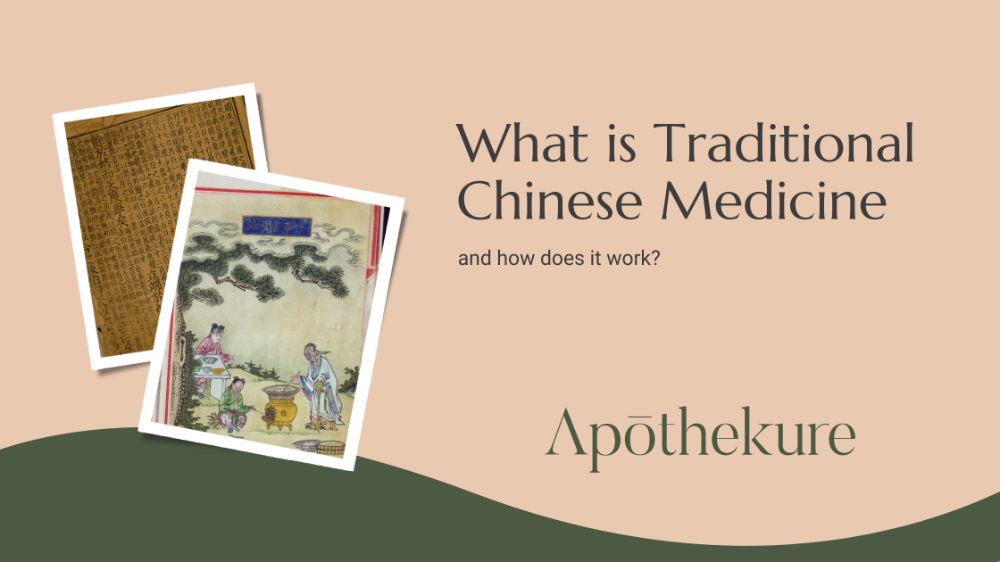 What is Traditional Chinese Medicine?
What is Traditional Chinese Medicine?
Traditional Chinese Medicine (TCM) is a system of health care that originated in China over 2,000 years ago. It is often called “the mother of all medical systems” because of its breadth and depth. Chinese medicine is based on the theory that the body is composed of interacting elements called “qi” or “chi”. When these elements are disturbed, disease can result.
The more balanced and harmonious the yin and yang of Qi, the more a person experiences balance and contentment.
Traditional Chinese medicine practitioners use acupuncture, Chinese herbal medicine, cupping and other modalities of treatment to restore balance to the body's chi.
If you're curious about traditional Chinese medicine, read on to learn more about how it can help you maintain good health.
What is the History of Traditional Chinese Medicine?
.png)
The history of traditional Chinese medicine is long and varied. Its origins are unclear but written records of Chinese medicine dates back to around 1,100 BCE. One of the earliest books discussing TCM includes the Yellow Emperor's Inner Classic. The ideas are still in practice today.
How does TCM work?
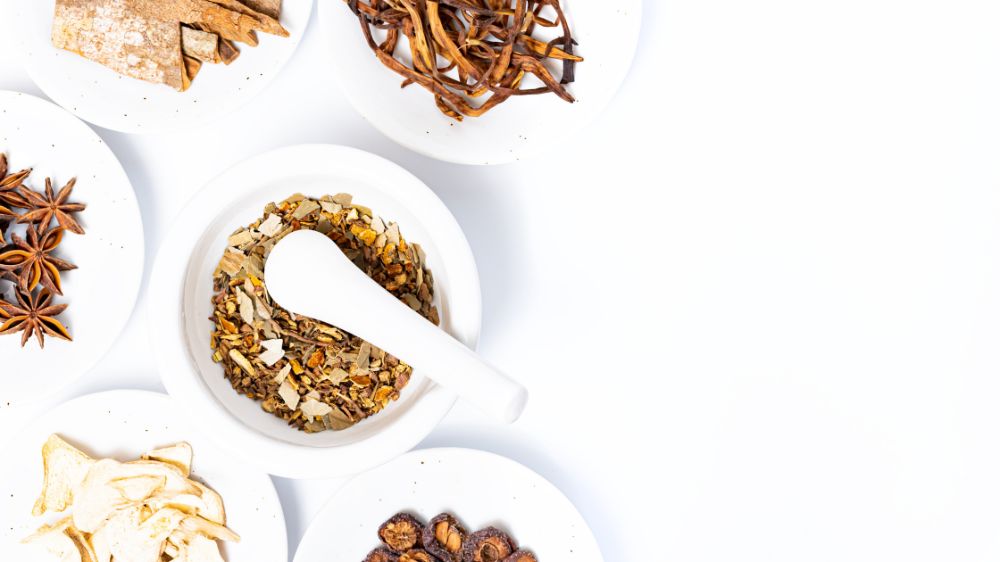
The first step to achieving good health is paying attention to your body. TCM practitioners believe that your mental, physical, and spiritual health are all important aspects of maintaining good health.
One way that TCM practitioners try to achieve this harmony is through meditation and the practice of qigong. They look at the five elements: wood, fire, earth, metal, and water. They consider a person’s diet as well as their lifestyle choices. Some practices might combine these methods with acupuncture or herbal medicine. The practitioner will also take into account other factors such as seasonality for illness patterns.
The Five Elements in Traditional Chinese Medicine
As mentioned, the five elements in traditional Chinese medicine are: wood, fire, earth, metal, and water. Each of these elements is believed to be linked with different organs. They are thought to play a role in everything from our health to our personality traits and well-being.
What is TCM good for?
TCM is good for many different health concerns. Most people know about the stress-relieving benefits of acupuncture, but there are many other kinds of treatments that TCM can provide:
Moxibustion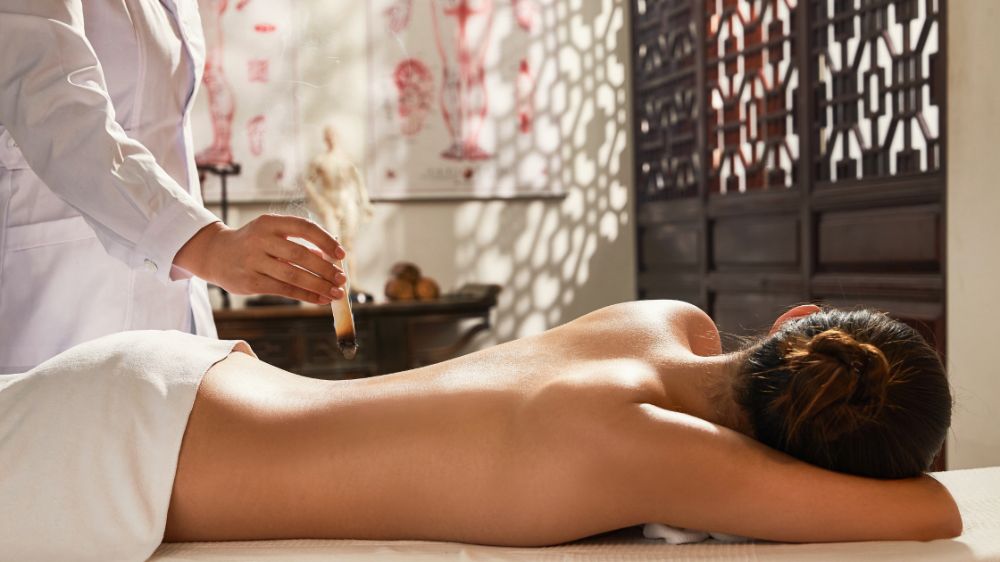
Moxibustion is a traditional Chinese medicine therapy which involves the burning of mugwort, a herb, on or above the skin at certain acupuncture points. The purpose of moxibustion, as with other forms of traditional Chinese medicine, is to strengthen the flow of qi in the body and promote healing.
Qigong and Tai Chi

There are many similarities between Qigong and Tai Chi, as they are both based on the principles of Chinese medicine and martial arts. However, there are also some key differences. Qigong is more focused on the internal aspects of health, while Tai Chi emphasizes the external movements and form. Tai Chi is also a more dynamic and fluid practice, while Qigong is more static and rooted.
Herbal Medicine
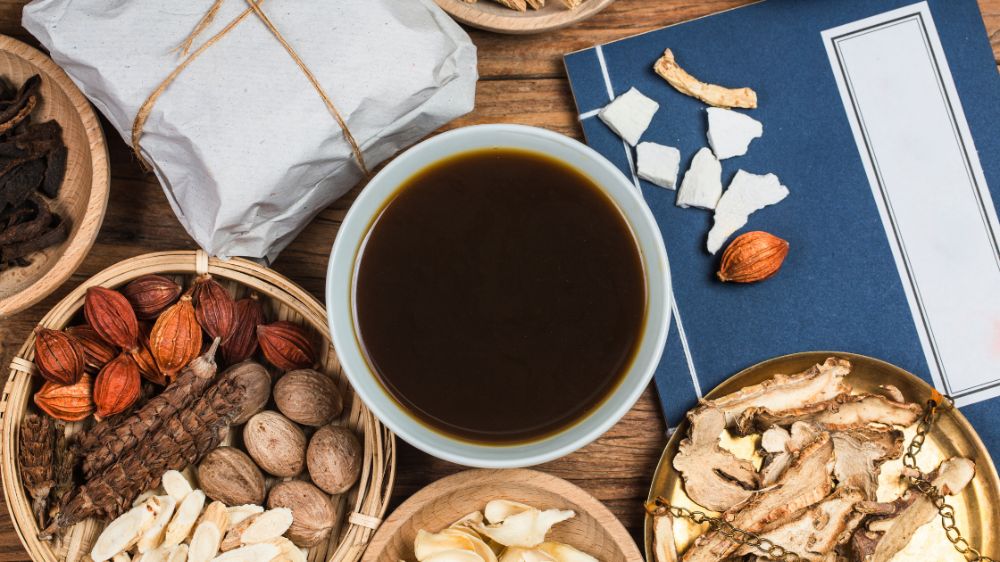
Traditional Chinese herbal medicine uses a variety of different herbs to improve health and well-being. Rather than treating specific symptoms or diseases, Chinese herbalists take a more holistic approach, treating the whole person and their unique pattern of symptoms. Chinese herbal therapy can be administered in several different forms, including granules or capsules, teas, liquid extracts, and powders. A traditional formula may be used, or a custom formula specifically tailored to the individual may be created.
The Role of Qi and Meridians
The key concept in TCM is the idea that all things are made up of energy that are called qi. Qi is often translated to mean “breath” or “air,” and it is an intricate part of all living beings. This energy flows through 12 meridians. They are channels that carry qi throughout the body and are connected to one of the five elements. These channels can be blocked or open. They are connected to various organs and functions of the body.
Half of the meridians are associated with Yin while the other half is Yang. They are both important, but they have different functions. The yin meridians are considered the female side of the body. They are responsible for keeping the organs healthy and balanced. The yang meridians are considered the male side of the body and they are responsible for generating heat and protecting the body.
Why is Traditional Chinese Medicine at Odds with Western medical science?
Traditional Chinese Medicine is based on a different set of principles than Western medical science. It is more focused on preventative care and overall wellness, while Western medicine is more focused on treating specific illnesses. This can sometimes lead to conflict between the two approaches.
Traditional Chinese Medicine incorporates a wider range of practices and techniques. This allows TCM practitioners to look at many aspects of health simultaneously, which helps them reach a more holistic approach to treatment. In addition, TCM is based on five different "energies" or body-mind states that are intertwined with each other. These energies are related to seasons, organ system function, mental state, emotional state, and diet.
By addressing these energies and working together as a team, you can achieve better health. TCM also focuses on treating the person as a whole instead of isolating one ailment (like Western medicine does). It is believed that by paying attention to all these factors and working complimentary to each other, you can achieve better health.
What is the Effectiveness of Traditional Chinese Medicine?
Historically, it has been used to treat many conditions. Scientists in the West are still studying it.
If you have a serious condition, consider working with a conventional doctor along with a TCM practitioner to provide you with the most well-rounded care . Everyone on your health care team should know about any supplements you are taking. With that said, TCM has helped with many ailments including:
- Back Pain
- Fertility Disorders
- High Cholesterol
- Sleeping Issues
- Stress
- Constipation
- Heart disease and more
The traditional Chinese medicine approach focuses on treating diseases through balancing changes within the body as opposed to using drugs as a way to combat them. For example, acupuncture and Chinese herbs might be used for a wide range of health issues including arthritis, headaches and stress. The TCM belief is that if this form of treatment can change how your body works with illness rather than just masking symptoms, they will go away naturally.
Are There Any Side Effects of Using Traditional Chinese Herbal Products?
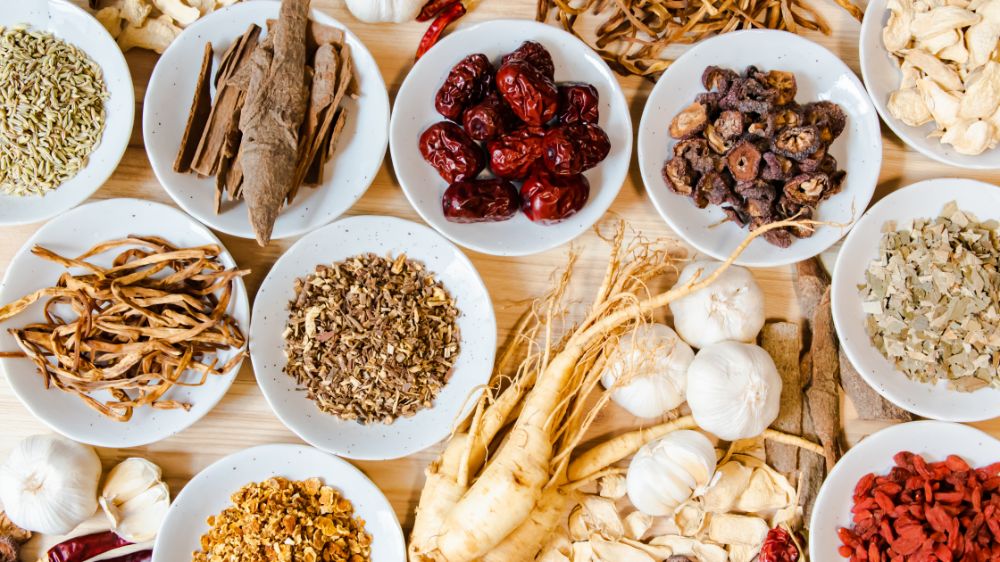
Traditional Chinese herbal medicines may also cause side effects, just like conventional medicines can. They may trigger allergic reactions or interact with other prescription and nonprescription medicines or herbs. It is always best to consult with a healthcare professional before taking any type of supplement, just to be safe.
The Bottom Line
People have turned to traditional Chinese medicine for thousands of years to treat their health conditions. Many concepts of the healing system are still practiced today. The main objective of TCM is to maintain or restore health and well-being by treating the root cause of disease rather than simply suppressing symptoms. TCM uses a holistic approach to treatment, focusing on the patient’s whole body, rather than just their disease or injury. It is thought the human body has an innate ability to heal itself and that good health depends on maintaining balance within the body.
Resources:
Cheung, Felix. “TCM: Made in China.” Nature, vol. 480, no. 7378, Dec. 2011, pp. S82–S83, www.nature.com/articles/480S82a, 10.1038/480s82a. Accessed 9 July 2022.
Deng, Hongyong, and Xueyong Shen. “The Mechanism of Moxibustion: Ancient Theory and Modern Research.” Evidence-Based Complementary and Alternative Medicine, vol. 2013, 2013, pp. 1–7, www.ncbi.nlm.nih.gov/pmc/articles/PMC3789413/, 10.1155/2013/379291. Accessed 9 July 2022.
LI, S., Wang, S. & Zhang, D. (1603) Compendium of Materia Medica, 52 Juan; Illustrations, in Two Juan. Jiangxi Sheng: Zhang Dingsi. [Pdf] Retrieved from the Library of Congress, https://www.loc.gov/item/2021666452/.
“Traditional Chinese Medicine Information | Mount Sinai - New York.” Mount Sinai Health System, 2013, www.mountsinai.org/health-library/treatment/traditional-chinese-medicine. Accessed 9 July 2022.
Zhang, Wei-Bo, et al. “Classic and Modern Meridian Studies: A Review of Low Hydraulic Resistance Channels along Meridians and Their Relevance for Therapeutic Effects in Traditional Chinese Medicine.” Evidence-Based Complementary and Alternative Medicine, vol. 2015, 2015, pp. 1–14, www.hindawi.com/journals/ecam/2015/410979/, 10.1155/2015/410979. Accessed 9 July 2022.
Get your daily dose of wellness delivered straight to your inbox. Sign up now for our newsletter.
Disclaimer:
These statements have not been evaluated by the Food and Drug Administration. This product is not intended to diagnose, treat, cure, or prevent any disease.
The content is purely informative and educational and should not be construed as medical advice. Any opinion expressed should not be treated as a substitute for professional medical advice. By using this website, you accept our Terms & Conditions and Privacy Policy. We cannot guarantee the accuracy of the information presented at this site. This article is not intended to be used as a substitute for the diagnosis and treatment of any health problem or to prescribe any medication or other treatment. You should consult with your health care provider before starting any diet, exercise, or supplementation program, before taking any medication, or if you have or suspect you might have a health problem.